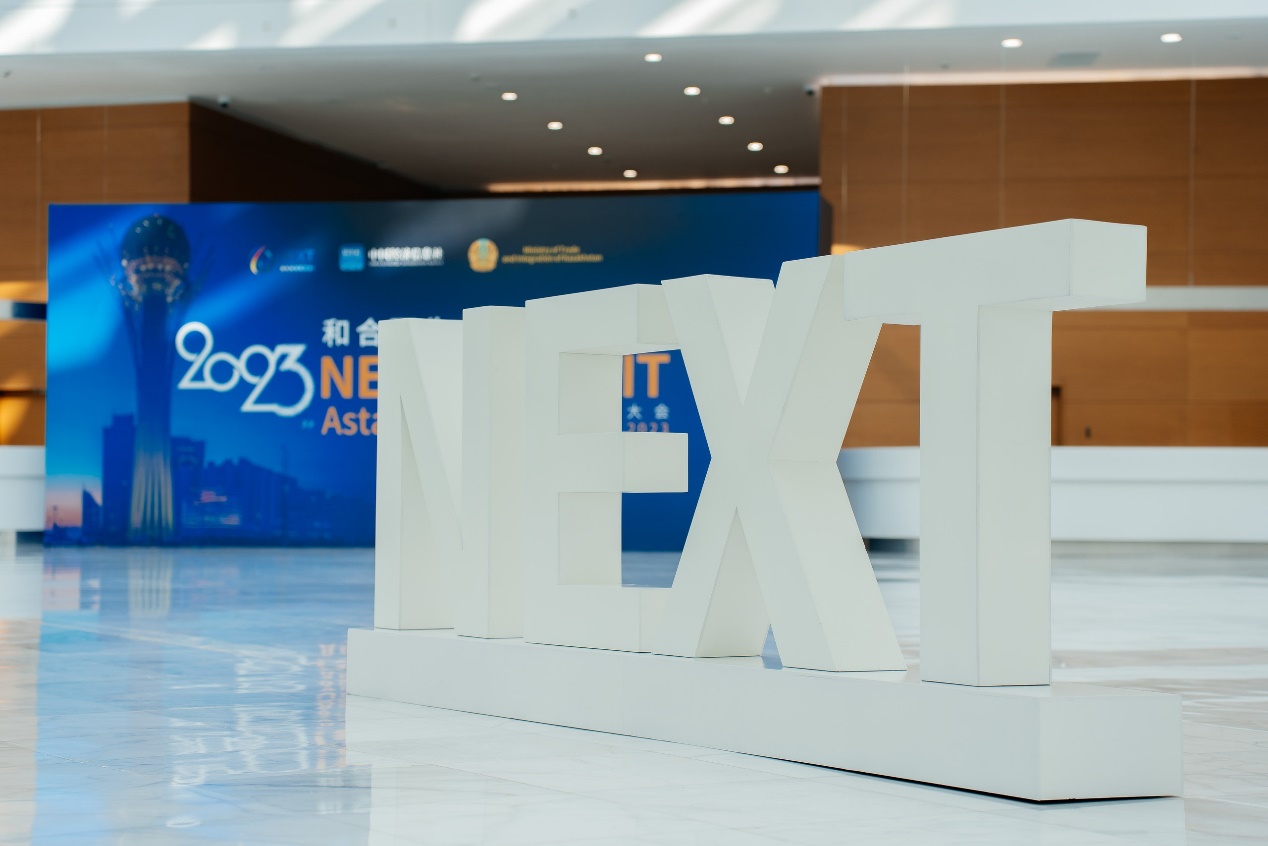NEXT Summit (Astana 2023): Green Energy Development and New Frontiers in Artificial Intelligence in Focus
To address climate change, the global energy market is shifting from traditional fossil fuels to clean energy—a trend that is both inevitable and accelerating. Over the past decade, renewable energy, particularly wind and solar power, has seen rapid adoption, with many countries making steady progress in their green energy transitions. However, this transformation also presents challenges to the stability and resilience of global energy supplies.
Meanwhile, a new generation of artificial intelligence (AI) technologies is emerging, characterized by high autonomy, self-learning capabilities, and adaptability. These advancements pose new challenges to traditional regulatory frameworks, especially in forecasting risks and consequences, clarifying responsibilities, and managing security concerns. With data now a critical asset for nations, enterprises, and individuals alike, how to effectively regulate AI to ensure safety and privacy has become a major concern across sectors and governments globally.
On August 22, the “Energy and Artificial Intelligence” sub-forum of the NEXT Summit (Astana 2023) brought together industry leaders to discuss the future of green energy and AI innovation. Speakers included Ms. Gao Jie, Chairwoman of Shanghai INASUN New Energy Co., Ltd.; Mr. Ni Jian, Deputy General Manager of AUJEN (Wuxi) Network Energy Co., Ltd.; and Dr. Shuai Bo, Director of the Institute for Low-Altitude and Network Risk Studies at the Urban Risk Management Research Institute of Tongji University. The forum was moderated by Mr. Wang Leyong, Chairman of Leyong Group UAE and Vice Chairman of Council of NEXT Federation.
Breakthroughs in Silicon-Energy Batteries Drive Energy Industry Upgrades
Fossil fuels have long powered industrial civilization, but they also bring serious environmental issues and contribute to climate change. These realities are driving an urgent shift in how energy is produced and consumed. Around the world, green and low-carbon development has become a new engine for economic growth and green recovery, with new energy at the heart of this transformation.
At the forum, Ms. Gao Jie highlighted the breakthrough innovation of silicon-energy batteries and their potential to transform the energy industry. These batteries feature advanced structures and manufacturing processes. By introducing new materials into the electrolyte and incorporating nanotechnology and quantum techniques, the battery delivers superior performance.
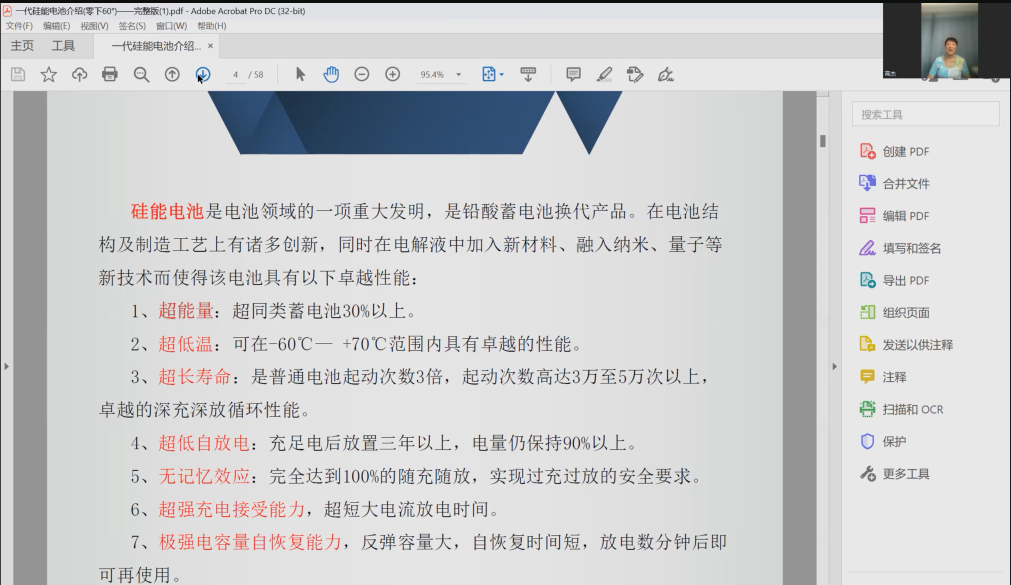
According to Gao, the advantages of silicon-energy batteries include:
- Outstanding performance: Over 30% improvement compared to conventional batteries.
- Ultra-long lifespan: Up to 30,000–50,000 cycles, several times higher than traditional starter batteries.
- Enhanced capabilities: Exceptional charging acceptance, high current discharge capacity, and self-recovery of capacity.
She noted that these batteries are particularly valuable in harsh or special environments, with applications in military equipment, special-purpose vehicles, cold-climate transportation, household devices, and energy storage systems.
Immersion Liquid Cooling Gains Attention: A Solution for 5G Equipment Heat Dissipation
As technology evolves, integrating new innovations into the energy sector remains a key focus. Mr. Ni Jian introduced AUJEN’s immersion liquid cooling technology, which is seeing rapid adoption in 5G communication, data centers, and energy storage.
AUJEN (Wuxi) Network Energy Co., Ltd. is an innovative enterprise focusing on the R&D and application of liquid cooling technologies, aiming to deliver efficient, low-carbon, and safe energy solutions worldwide. In his online presentation, Ni discussed how AUJEN’s immersion cooling systems function by fully submerging IT equipment in a special fluorinated liquid, which removes heat through phase-change vaporization.
The fluorinated liquid is:
- Non-flammable
- Highly safe and insulating
- Environmentally friendly
- Cost-effective
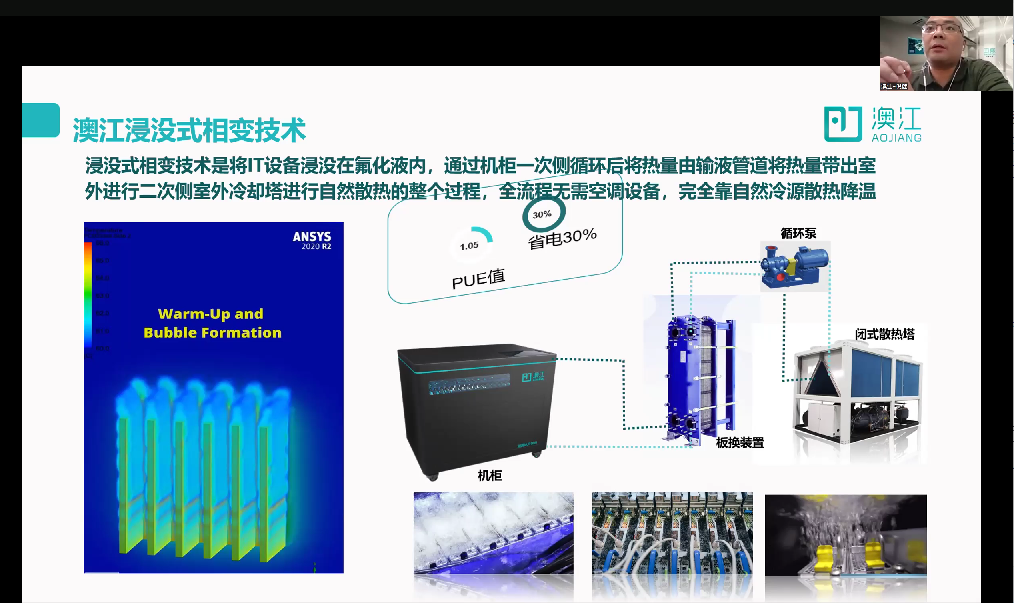
This method dramatically reduces energy consumption in data centers and increases the stability and lifespan of devices.
Ni explained that:
- In 5G networks, the technology resolves heat dissipation issues for base stations.
- In data centers, it meets the cooling needs of high-density computing and supports power-hungry sectors like AI, autonomous driving, and supercomputing.
- In energy storage, it enhances the safety, efficiency, and longevity of energy storage systems.
Rapid Drone Innovation Will Play a Key Role in Urban Low-Altitude Security
Artificial intelligence has long been seen as a powerful force for business innovation. With supporting infrastructure becoming more mature, companies increasingly understand the value AI brings—particularly in automation, cost savings, process speed, and scalability.
At the forum, Dr. Shuai Bo from Tongji University presented on AI-based urban low-altitude security systems, focusing on how machine learning and blockchain can enhance drone management and public safety.
Drones are now widely used in resource exploration, agriculture, electric grid inspections, disaster response, and aerial mapping. However, their proliferation also introduces risks—such as airport interference, public safety threats, and privacy breaches. Shuai pointed out that due to drones’ portability and ease of operation, cities around the world are facing significant information security challenges.
In his presentation, Shuai elaborated on AI applications in low-altitude security:
- Blockchain can assign unique identifiers and traceability to drones.
- Cloud platforms and deep learning models enable smart control and monitoring of drone operations.
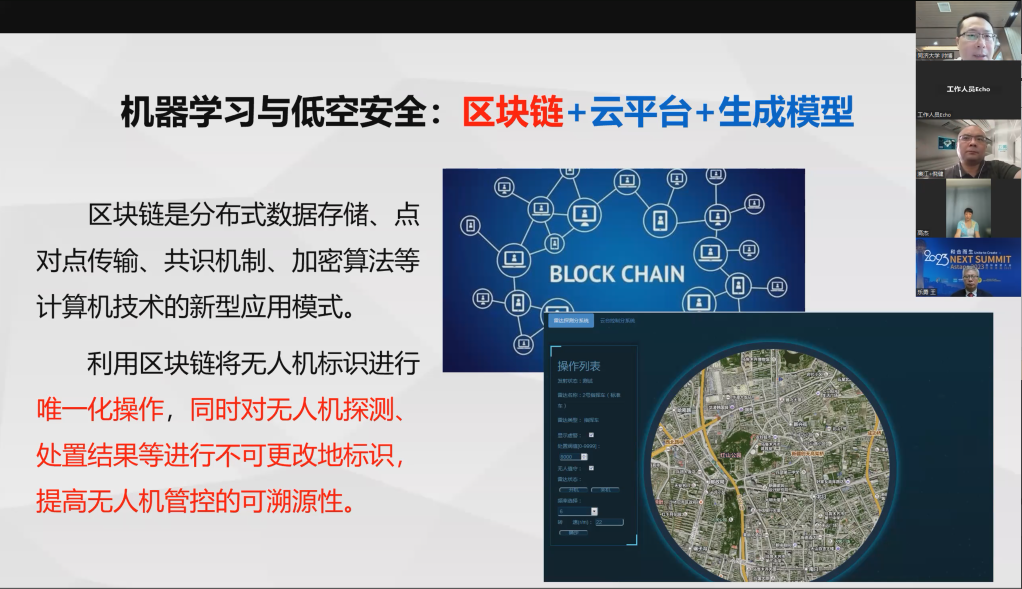
He concluded that while drones present enormous opportunities, they also introduce substantial safety concerns. Machine learning-based AI solutions offer new strategies for managing these risks and will be vital in ensuring urban low-altitude security in the future.
Co-hosted by the NEXT Federation, China Economic Information Service (Xinhua News Agency), and the Ministry of Trade and Integration of Kazakhstan, the 7th NEXT Summit (Astana 2023) was held under the theme “Unite to Create.” The summit aims to enhance global confidence and understanding in promoting innovation, cooperation, and development, and to identify strategic opportunities and project partnerships for international collaboration.
The Summit serves as a high-level platform for the exchange of talent, knowledge, technology, and capital. It expands global cooperation networks and elevates the level and impact of public-private partnerships worldwide.
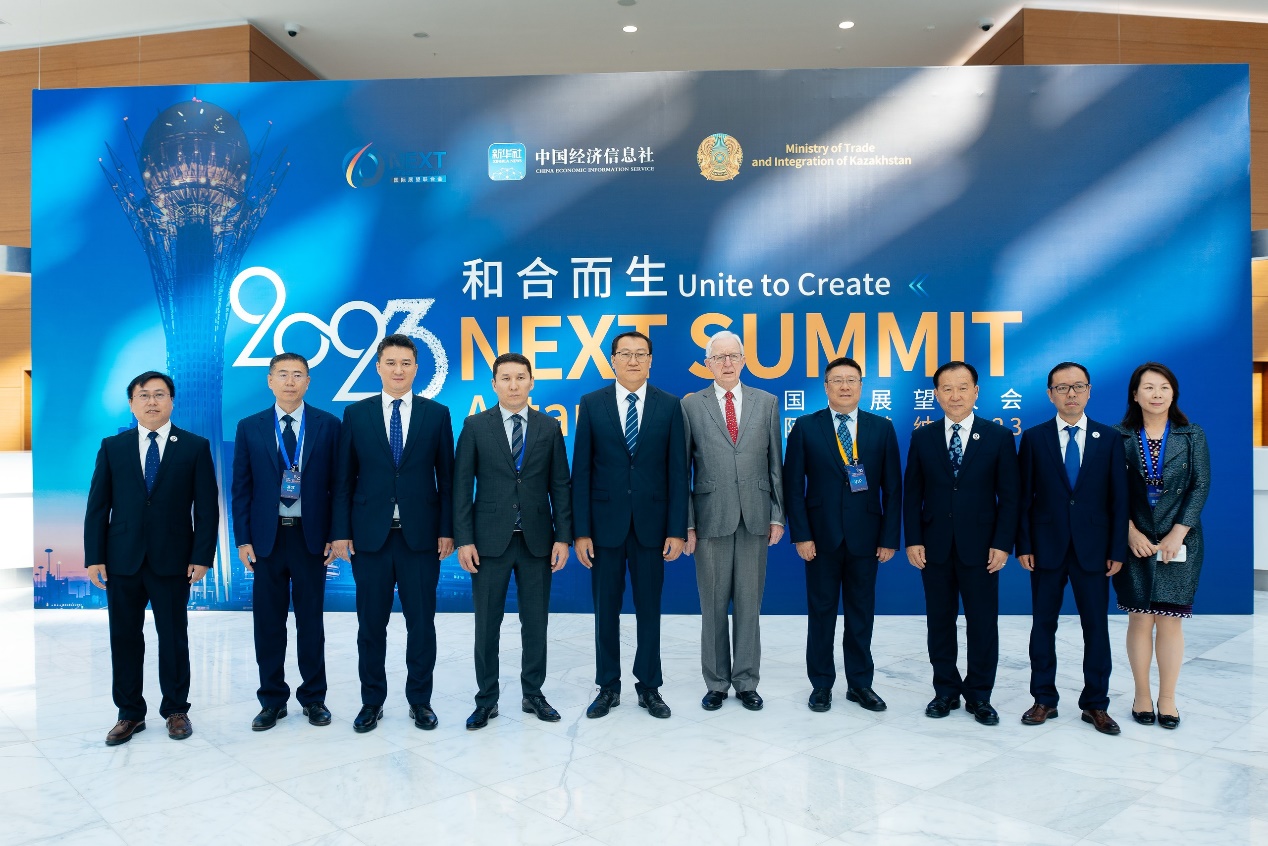
The NEXT Summit has become a recognized brand in global cooperation and exchange. Adhering to the GMABC integrated service model—coordinating resources from Government, Media, Academia, Business, and Community—it acts as a vital bridge for policy dialogue, project promotion, technical cooperation, talent engagement, and international communication.
For more information, please visit the official website: www.nextsummit.org
